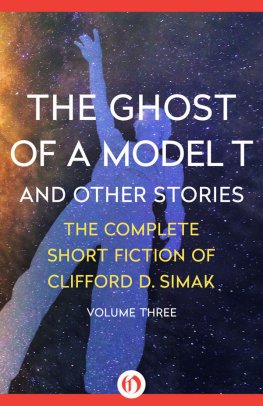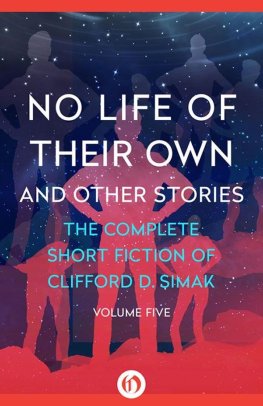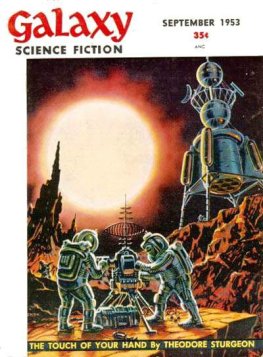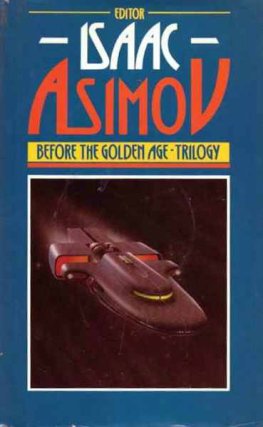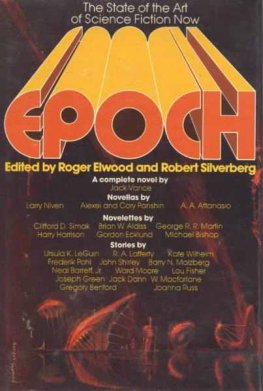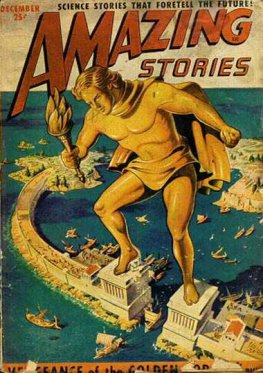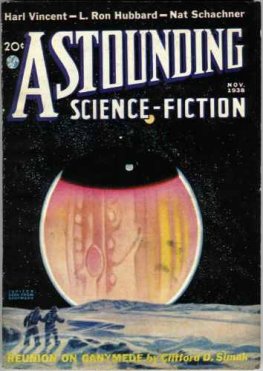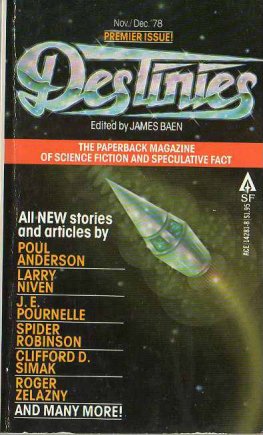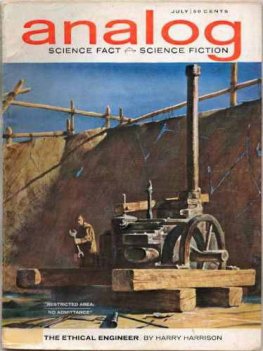Clifford Simak - A Choice of Gods
Here you can read online Clifford Simak - A Choice of Gods full text of the book (entire story) in english for free. Download pdf and epub, get meaning, cover and reviews about this ebook. genre: Science fiction. Description of the work, (preface) as well as reviews are available. Best literature library LitArk.com created for fans of good reading and offers a wide selection of genres:
Romance novel
Science fiction
Adventure
Detective
Science
History
Home and family
Prose
Art
Politics
Computer
Non-fiction
Religion
Business
Children
Humor
Choose a favorite category and find really read worthwhile books. Enjoy immersion in the world of imagination, feel the emotions of the characters or learn something new for yourself, make an fascinating discovery.

- Book:A Choice of Gods
- Author:
- Genre:
- Rating:5 / 5
- Favourites:Add to favourites
- Your mark:
- 100
- 1
- 2
- 3
- 4
- 5
A Choice of Gods: summary, description and annotation
We offer to read an annotation, description, summary or preface (depends on what the author of the book "A Choice of Gods" wrote himself). If you haven't found the necessary information about the book — write in the comments, we will try to find it.
A Choice of Gods — read online for free the complete book (whole text) full work
Below is the text of the book, divided by pages. System saving the place of the last page read, allows you to conveniently read the book "A Choice of Gods" online for free, without having to search again every time where you left off. Put a bookmark, and you can go to the page where you finished reading at any time.
Font size:
Interval:
Bookmark:
Clifford Simak
A Choice of Gods
1
Aug. 1, 2185: So we begin again. Actually, we began again fifty years ago, but did not know it then. There was hope, for a time, that there were more people left and that we could pick up where we had left off. We thought, somehow, that we could hang onto what we had, once the shock was over and we could think more clearly and plan more cleverly. By the end of the first year we should have known that it was impossible; by the end of five we should have been willing to admit it, but we weren't. At first we refused to face the fact and once we had to face it we became stubborn with a senseless sort of faith. The old way of life could not be revived; there were too few of us and none with special knowledge and the old technology was gone beyond all restoration. The technology had been too complex and too specialized and too regimented to be picked up and carried on without a large work force equipped with appropriate skills and knowledge that were necessary not only to operate the technology itself, but to produce the energy that went into it. We are now no more than scavengers feeding on the carcass of the past and some day we'll be down to the bare bones of it and will be finally on our own. But over the years we have been recovering or rediscovering, whichever it may be, some of the older and more basic technology geared to a simpler way of life and these basic rudimentary skills should keep us from sinking into utter savagery.
There is no one who knows what really happened, which does not, of course, deter some of us from formulating theories that might explain it all. The trouble is that all the theories boil down to simple guesses, in which all kinds of metaphysical misconceptions play a part. There are no facts other than two very simple facts and the first of these is that fifty years ago last month the greater fraction of the human race either went somewhere or was taken somewhere. Out of more than eight billion of us, which was certainly far too many of us, there are now, at most, a few hundred left. In this house in which I sit to write these words, there are sixty-seven humans, and only that many because on the night it happened we had invited some young guests to help us celebrate the coining of age of our twin grandsons, John and Jason Whitney. Of the Leech Lake Indians there may be as many as three hundred, although we now see little of them, for they have taken up again, quite happily and to their great advantage, or so it would seem to me, their old tribal wanderings. At times rumors reach us of other little pockets of humanity still surviving (the rumors chiefly brought by some loose-footed robot), but when we've gone to hunt for them, they are never there, nor is there anything to indicate they ever had been there. This, of course, proves nothing. It stands to reason that elsewhere on the Earth there must be others left, although we have no idea where. We hunt for them no longer, even when the rumors come, for it seems to us that we no longer have any need of them. In the intervening years we have become content, settling down into the routine of a bucolic life.
The robots still are with us and we have no idea how many there may be. All the robots that were ever in existence must still remain. They did not go or were not taken as was the human race. Over the years a number of them have come to settle in with us, doing all the work and chores necessary for our comfortable existence, becoming, in all truth, a part of our community. Some of them at times may leave and go elsewhere for a while and there are occasions when new ones float in and stay, either for good or for varying periods. It might seem to someone unacquainted with the situation that in the robots we had the labor force we needed to keep at least a small sector of the more vital parts of the old technology alive. It is possible the robots could have been taught the necessary skills, but the rub here is that we had no one who was equipped to teach them. Even if we'd had, I have some well-founded doubt that it would have worked. The robots are not technologically minded. They were not built to be. They were built to bolster human vanity and pride, to meet a strange longing that seems to be built into the human egothe need to have other humans (or a reasonable facsimile of other humans) to minister to our wants and needs, human slaves to be dominated, human beings over which a man or woman (or a child) can assert authority, thus building up a false feeling of superiority. They were built to serve as cooks, gardeners, butlers, maids, footmen (I have never got quite straight in mind what a footman is)servants of all kinds. They were the flunkeys and the inferior companions, the yea-sayers, the slaves. In a manner of speaking, in their services to us, I suppose they still are slaves. Although I doubt the robots think of it as slavery; their values, while supplied by human agency, are not entirely human values. They serve us most willingly; thankful of a chance to serve, they press then" services upon us, apparently glad to find new masters to replace the old. This is the situation as it applies to us; with the Indians it is different. The robots do not feel at ease with the Indians and the Indians, in turn, regard them with an emotion that borders upon loathing. They are a part of the white man's culture and are readily acceptable to us upon the basis of our one-time preoccupation with machines. To the Indians they are unclean, something that is repulsively foul and alien. They will have no part of them. Any robot stumbling into an Indian camp is summarily hustled off. A few of the robots serve us. There must be many thousands more. Those that are not with us we have fallen into the habit of calling wild robots, although I doubt they, in any sense, are wild. Often, from our windows or while sitting on the patio, or while out walking, we see bands of wild robots hurrying along as if they had an urgent destination or were involved in some great purpose. We have never been able to determine where the destination or what might be the purpose. There are certain stories of them that we hear at times, but nothing more than stories and with no evidence, and not worth repeating here.
I said there were two facts and then got lost in the telling of the first. This is the second fact: Our lives are much longer now. In some strange way which no one pretends to understand, the process of aging, if not halted, has been slowed. I have not seemed to age at all, nor have any of the others, in these last fifty years. If there are a few more white hairs I cannot detect them; if I walk a little slower after fifty years I am not aware of it. I was sixty then and I still am sixty. The youngsters develop to maturity in the usual manner and the normal course of time, but once they reach maturity, the aging seems to stop. Our twin grandsons, whose twenty-first birthday we observed fifty years ago, still are twenty-one. They are, to all physical appearances, the same age as their sons and their oldest grandsons and at times this becomes somewhat disconcerting to someone like myself, who has lived his entire life with aging, and with the expectation of it. But disconcerting as it may be, I do not quibble with it, for with the inhibition of aging has come, as well, unbelievable good health. That was something that had worried us to start withwith all the people gone, what would we do for doctors or hospital care if we should happen to fall ill? Luckily, perhaps, the chronological years during which a woman remains capable of bearing children are about the same as they were before the span of life was lengthened. The female reproductive system apparently exhausts its supply of potential egg cells within some thirty years or so, as it did before.
There can be little doubt that the disappearance of the human race and the inhibiting of aging must somehow be connected. And while none of us can help but be grateful for this longer life and, perhaps as well, for the lifting of the social pressure which came with the overpopulation of the planet, the more thoughtful of us sometimes worry about the implications which may lie behind it all. In the dark of night we lie unsleeping in our beds and think of it and although the shock has faded with the years, we are sometimes frightened.
Font size:
Interval:
Bookmark:
Similar books «A Choice of Gods»
Look at similar books to A Choice of Gods. We have selected literature similar in name and meaning in the hope of providing readers with more options to find new, interesting, not yet read works.
Discussion, reviews of the book A Choice of Gods and just readers' own opinions. Leave your comments, write what you think about the work, its meaning or the main characters. Specify what exactly you liked and what you didn't like, and why you think so.


